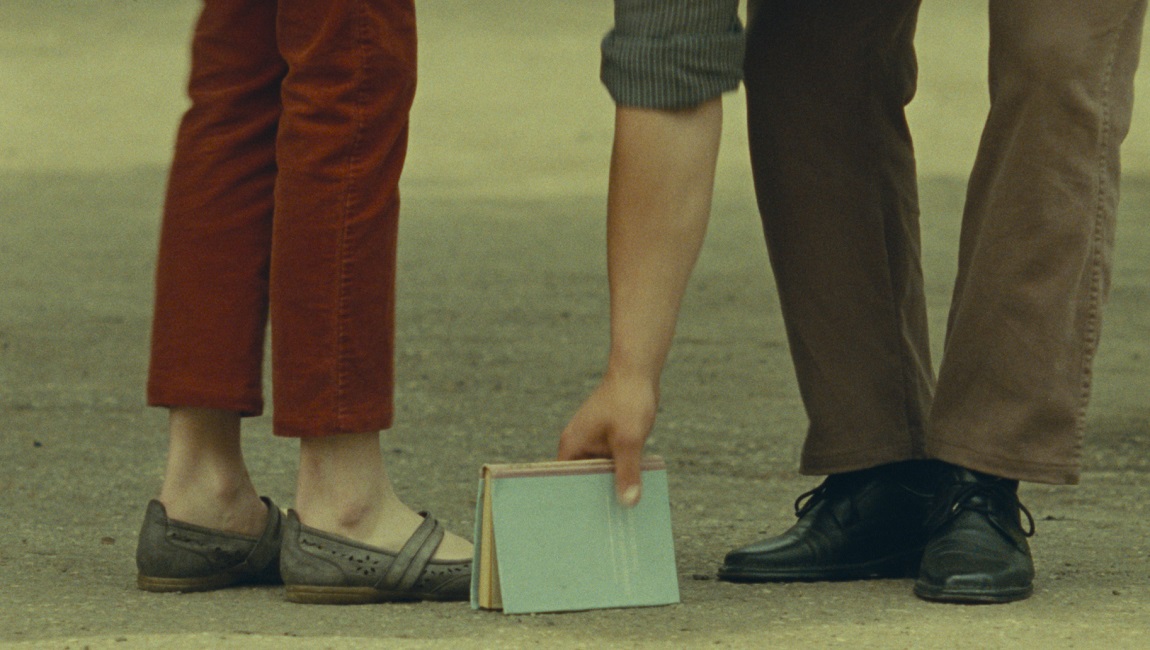Uppercase Print mishmashes modes and can become a bit of a slog, but there’s enough formal playfulness to recommend it as a valuable addition to Jude’s body of work.
Building upon the explicit interrogation of images and their meanings that one finds in I Do Not Care If We Go Down in History As Barbarians, Radu Jude’s new film Uppercase Print largely eschews a traditional narrative, and instead oscillates between a filmed stage play and archival television footage. The former is a filmed recreation of Gianina Cărbunariu’s 2012 play, which drew from official Romanian secret police (Securitate) surveillance files about Mugur Călinescu, a young man, who in 1981 created distinctive graffiti slogans in public places professing anti-socialist and anti-Ceaușescu sentiments (drawn in large, bold uppercase letters). In his now typical Brechtian fashion, Jude shows the entire set of the play, then shoots individual scenes and actors in careful medium shots that lie somewhere between studio portraiture and police line-up photos. The actors, reciting dialogue taken from official memorandums, witness declarations, and audio transcripts, speak directly to the viewer, and Jude only very occasionally moves the camera or places more than one person on screen at a time. This boldly artificial staging is interspersed with a plethora of archival television footage from the period — essentially state-sanctioned pop culture, ranging from commercials to educational short films to comedy routines to musical performances. The footage is often hilariously dated and aggressively over the top in its shameless celebration of “official” culture. (The film practically exults in ludicrous cultural minutiae, such as an instructional on how to properly and politely beat one’s rugs so as not to disturb one’s neighbors, or clips of police organizing a sting operation to catch rude motorists who honk their car horns.)
The point of these juxtapositions is clear: as the unadorned, banal details of the police case gradually accumulate, eventually leading to the ruin of young Mugur’s life, frivolous propaganda inundates the Romanian population on a daily basis (production values and dated stylistic tropes aside, television under an authoritarian ruler like Ceaușescu isn’t radically different from what we see every day in America). But ultimately the film becomes a bit of a slog, as the mishmash of the two modes goes and on and on, long after the point has been made. Uppercase Print frequently comes across like a gallery installation piece — with the exception of the last section of the film, where Mugur’s ultimate fate is revealed, one could hypothetically watch any few minutes of the film in any order and mostly get the point. Still, Jude remains one of the most exciting filmmakers working today, and while Uppercase Print is no masterpiece, it is a valuable addition to Jude’s overall body of work.
Originally published as part of Berlin International Film Festival 2020 | Dispatch 3.







